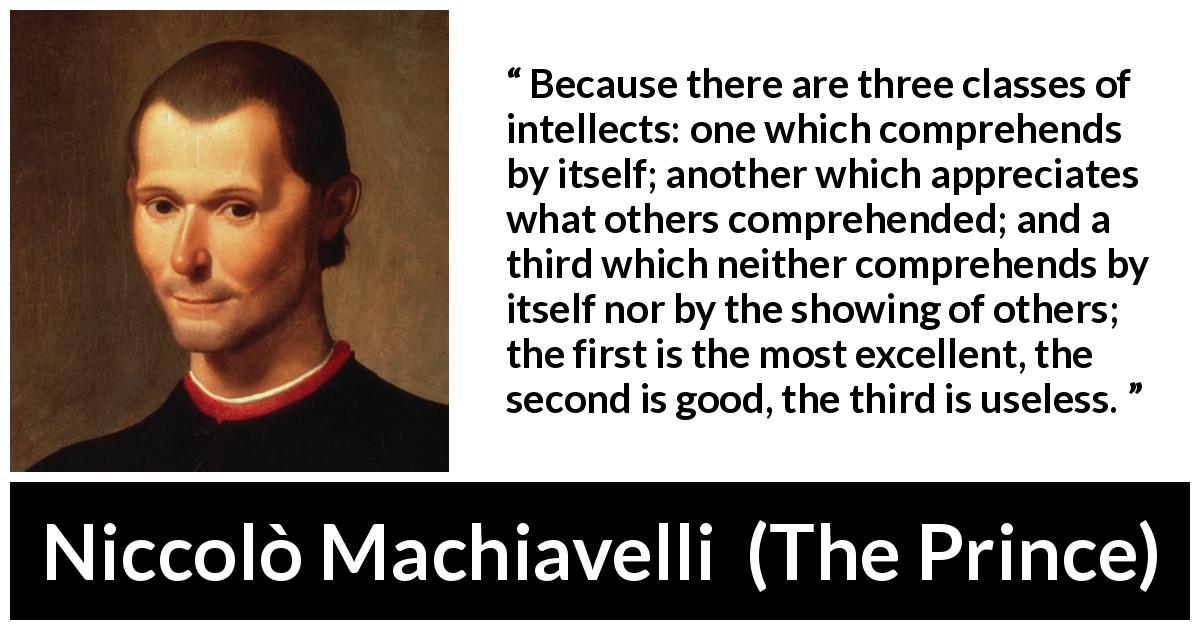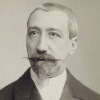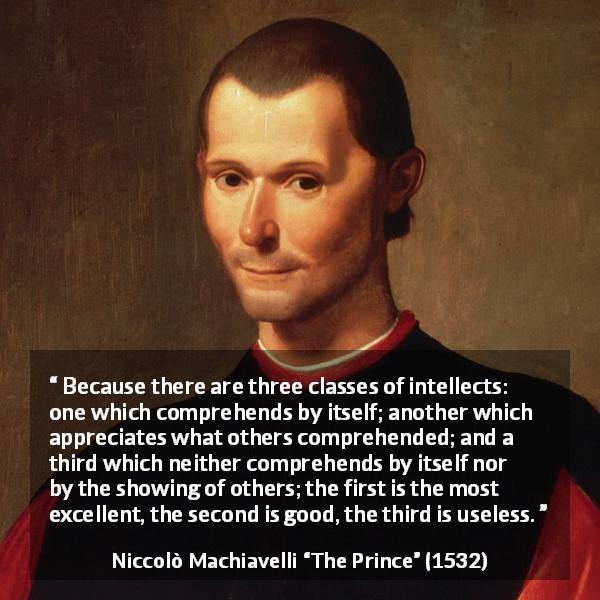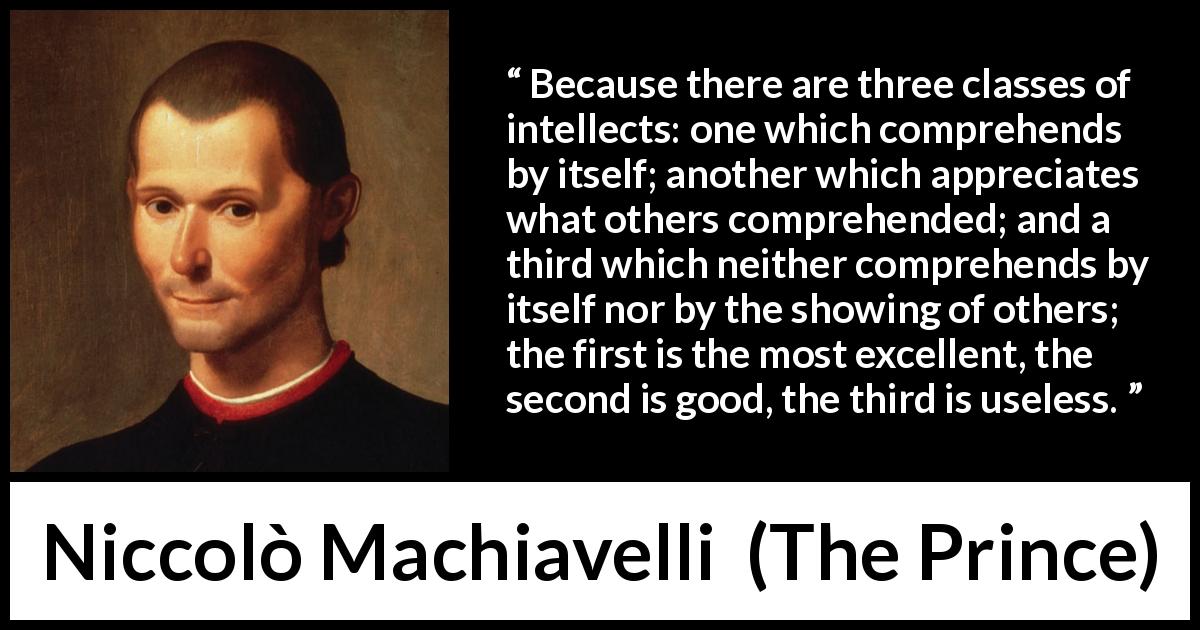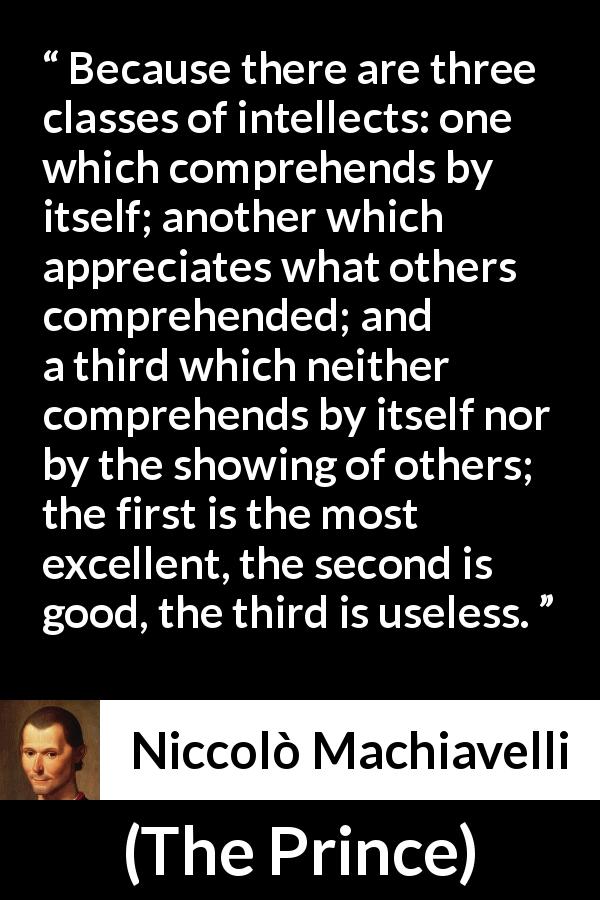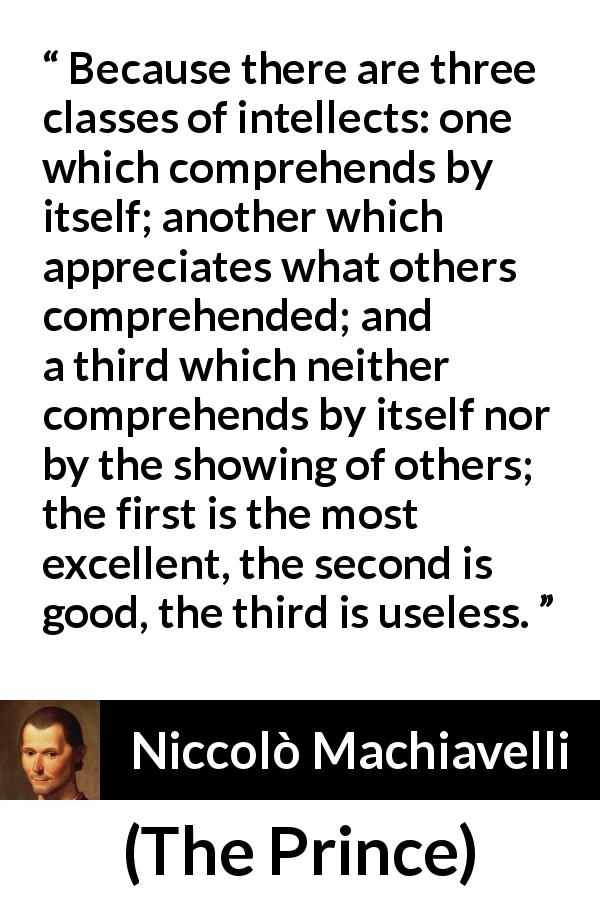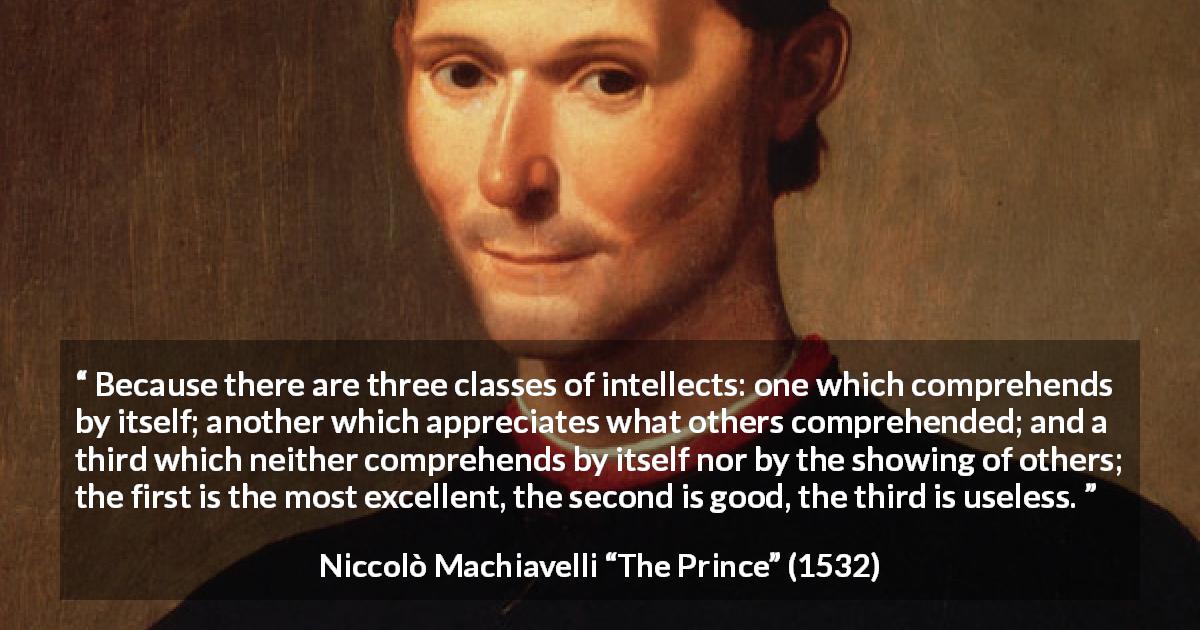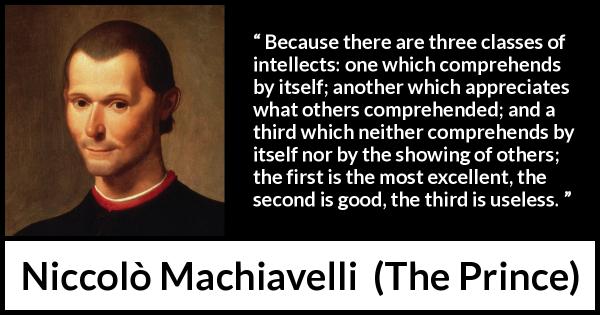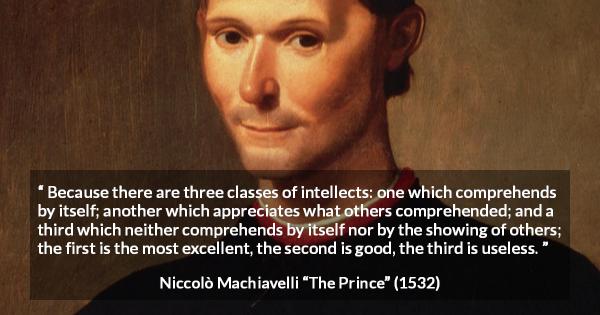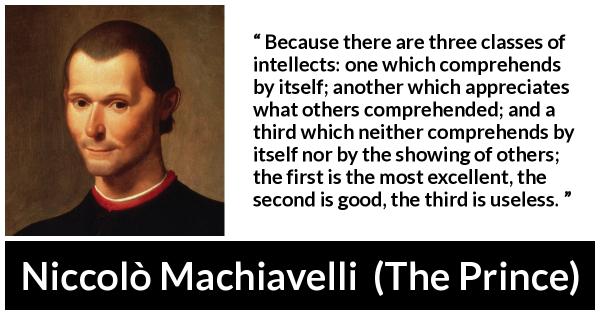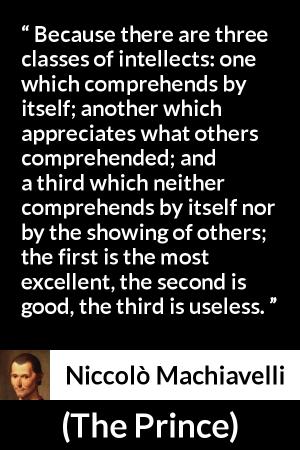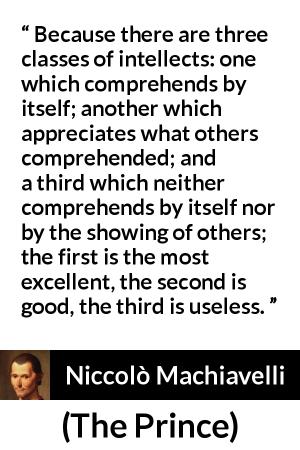“ Because there are three classes of intellects: one which comprehends by itself; another which appreciates what others comprehended; and a third which neither comprehends by itself nor by the showing of others; the first is the most excellent, the second is good, the third is useless. ”
Niccolò Machiavelli, The Prince (1532). copy citation
| Author | Niccolò Machiavelli |
|---|---|
| Source | The Prince |
| Topic | intellect comprehension |
| Date | 1532 |
| Language | English |
| Reference | |
| Note | Translated by W. K. Marriott |
| Weblink | http://www.gutenberg.org/files/1232/1232-h/1232-h.htm |
Context
“But when they are otherwise one cannot form a good opinion of him, for the prime error which he made was in choosing them.
There were none who knew Messer Antonio da Venafro as the servant of Pandolfo Petrucci, Prince of Siena, who would not consider Pandolfo to be a very clever man in having Venafro for his servant. Because there are three classes of intellects: one which comprehends by itself; another which appreciates what others comprehended; and a third which neither comprehends by itself nor by the showing of others; the first is the most excellent, the second is good, the third is useless. Therefore, it follows necessarily that, if Pandolfo was not in the first rank, he was in the second, for whenever one has judgment to know good and bad when it is said and done, although he himself may not have the initiative, yet he can recognize the good and the bad in his servant, and the one he can praise and the other correct; thus the servant cannot hope to deceive him, and is kept honest.” source
There were none who knew Messer Antonio da Venafro as the servant of Pandolfo Petrucci, Prince of Siena, who would not consider Pandolfo to be a very clever man in having Venafro for his servant. Because there are three classes of intellects: one which comprehends by itself; another which appreciates what others comprehended; and a third which neither comprehends by itself nor by the showing of others; the first is the most excellent, the second is good, the third is useless. Therefore, it follows necessarily that, if Pandolfo was not in the first rank, he was in the second, for whenever one has judgment to know good and bad when it is said and done, although he himself may not have the initiative, yet he can recognize the good and the bad in his servant, and the one he can praise and the other correct; thus the servant cannot hope to deceive him, and is kept honest.” source
